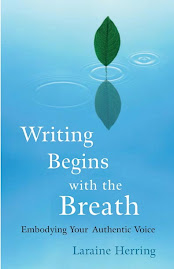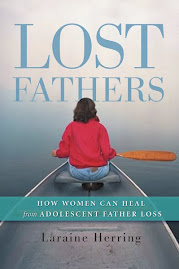
It happens every semester. The student creeps up to you in the very last breath of your office hour. Or she waits until the rest of the class has gathered up their backpacks and water bottles. Sometimes he's shy. Sometimes she's bold. Sometimes he poses it as a challenge. Sometimes more of a prayer.
"Do I have any talent?"
For a writing teacher, this question is the equivalent of being asked to reveal state secrets to the Taliban. And, fortunately, I've honed my Special Forces resistance skills over the years to where I can keep a poker face and provide the only answer that is ethical. "I can't answer that."
The reason the poker face is needed is because I'm still a human being. The students I work with present a wide range of abilities. I have personal tastes that I try to keep out of the classroom, but are still a part of how I see literature.
I'm convinced people ask the question because they want to be validated. My job is not to validate. My job is to help my students grow as writers. Think about it. The last time you asked someone if your butt looked fat in those jeans, did you really want them to say "actually, yes it does." Likely not.
I am not the Talent Police, nor am I the Talent Judge. I don't think anyone can be. Relax, though. Talent isn't the crystal ball of writing. Perseverance, a commitment to learning the craft, writing writing writing writing writing, studying grammar, reading reading reading reading reading -- these things can make a writer successful. I can't even tell you with certainty whether or not a piece can be published. So much of publishing is changing and out of our control that we can't possibly say with definitive authority -- no, it'll never make it. Or, yes! It's a bestseller. No one knows these things. Please don't ask us. Ask questions such as, "Who can I read more of to learn more about plot?" or "What are some of the different ways I could have approached that character conflict?" or "Where do you think the work fell into cliche?" Ask concrete developmental questions about your work. We can answer those. The work will improve. And the rest will go where it will go.
I think of talent as the magic bean. All of us got a handful of magic beans, but none of us got the same assortment of magic beans. All of these magic beans were not programmed to sprout at the same time. Sometimes they lie dormant until the circumstances arise for them to bloom. Sometimes they are nurtured from early childhood. Some people publish a book in their early twenties. Others not until their eighties. Everyone didn't get the same set of circumstances, so talent cannot be measured in an Excel spreadsheet. Talent can't be ranked, quantified, or implanted.
I also know that since all people are not given equal gifts that all people cannot accomplish the exact same things. No matter how much I want to be a blues singer, it just ain't happening in this life. That doesn't mean I can't enjoy music and singing, but it means the open mic or karaoke night is as far as I'm going to get with my musical ability.
Some people do have more writing talent than others. (Dare I say it? It's like porn -- you can't define it but you know it when you see it.) If you're in my class, I'll never ever tell you whether I think you're talented enough because I only see part of the picture. I can't know enough to tell you what you want (or don't want) to hear. I don't know how badly you want it. I will tell you if individual sentences, or stories, or poems sing. I will tell you how to make a piece stronger.
But only you know when the door of your reality opens and you realize that you can enjoy singing (or writing, or dancing, or swimming) your entire life, but you'll never be a professional. Remember the joy comes in the value of the relationship you have with your art form. Don't lose sight of that joy comparing yourself to the writing of others.
Do your own writing. Study. Read. Read. Read. Write. Read. Push yourself. Don't get complacent (oh, I already know how to write dialogue) -- I'll bet there's something new you could learn. There's something new all of us can learn. Be a constant student whether you're in class or not. Be in service to your art. Listen to it. Walk with it. That's the relationship that will get you wherever you and your writing are supposed to end up in this crazy world.
But talent? Don't worry about it. Your job is to use the magic beans you've been given to the best of your ability. Don't waste them comparing your beans to everyone else's beans. Your commitment is to your growth with your art. Nothing more and nothing less is required of you.
You may never be able to string together clauses like Faulkner, but that's OK. We've had one Faulkner. What is it that you can do?











No comments:
Post a Comment